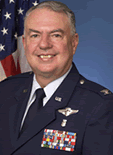
Planning, Implementation and Exploitation of a Field Exercise
Course Description:
Using the examples of field exercises Lifesaver 2004 & 2005, the course will discuss the principles of counter-terrorist preparation and incident command leading to outcome oriented exercises. The planning, execution, evaluation and exploitation of actual field exercises are reviewed. The execution of delta analysis is covered to identify and acquire initial operational capability and to apply available resources in an economic fashion in professionally achieving and expanding selected operational goals.
Target Audience
Academic Faculty/Staff, Federal Government Employees, State Government Employees, Local Government Employees, Non-Government Employees and Students
Learning Objectives
- Explain the vision of desired outcomes for mass casualty planning and the origins and purpose of the LIFESAVER exercises
- Name the principles for designing effective consequence management against terrorist use of weapons of mass destruction (WMD)
- List the challenges and elements of command and control during terrorist WMD events
- Describe the elements of planning for broadly based WMD exercises
- Name the most important aspects of exercise execution in broadly based WMD exercises using the LIFESAVER model
- Describe the purposes, players and processes for evaluation of WMD exercises using the LIFESAVER model
- Explain the importance and methodology for effective exploitation of exercises using the LIFESAVER model
- Describe the follow-up of field exercises
- Describe the planning and implementation of LIFESAVER 2005
- List the significant findings of LIFESAVER 2005
- Name some of the significant remaining issues and challenges resulting from the LIFESAVER exercises
Instructor:

Dr. Joseph Contiguglia
Dr. Joseph Contiguglia received an M.D. in medicine and surgery from the University of Siena, an MPH&TM from Tulane School of Public Health and Tropical Medicine and an MBA from St. Mary’s University. He holds clinical faculty appointments at the University of North Dakota, Texas Tech University Health Sciences Center and Tulane School of Public Health and Tropical Medicine.
Since 1999, Dr. Contiguglia has served as the Director of Operational Medicine and Chairman of the Department of Military Medicine at Keesler Medical Center, Kessler AFB, Mississippi. He develops, coordinates and implements plans and training for homeland defense with civilian organizations, local & state governments and federal agencies. He plans and directs programs to train 81 MDG professional and support personnel in critical combat/operational skills. He also plans and directs programs to establish the Medical Center as a Medical Weapons System with global reach to provide the USAF and DoD operational medical support worldwide in war and peace. Prior to this he served as Chief of Medical Operations and Chief of Professional Services, Office of the Command Surgeon, United States Air Forces in Europe. He headed the NATO preparation team establishing Operation Allied Force’s fighter operations in northwestern Turkey during the Balkan War.
Available Credit
- 6.00 Participation/CETulane Professional and Continuing Education (PaCE) awards 6.00 hour(s) of credit for completing Planning, Implementation and Exploitation of a Field Exercise
Price
Required Hardware/software
System Settings
This course is designed to work most effectively if your computer and internet connection meet certain minimal requirements. This course can be accessed using a Windows 10 PC or a Mac with High Sierra1, Mojave, or Catalina. Pop-up blockers should be disabled when viewing the course. Internet Explorer 11 (for Windows 10), or the current version of Google Chrome, Mozilla Firefox, or Apple Safari (for Windows 10 and or Mac) is required. Many of our courses require Java and JavaScript enabled.
Links to External Websites
Links to websites outside this course will open in a new window or tab. Some browsers may minimize the course window. If this occurs, maximize the course window to return to the course.
Adobe Acrobat Reader (for desktops and laptops)
Adobe Acrobat Reader is required to access some documents in this course. If you need to download a free copy of Acrobat Reader, click here.
Internet Connection Speed
A minimum download speed of 1.5 Mbps is recommended for an optimal experience, which is commonly the speed associated with a basic DSL or a cellular/satellite connection. A faster connection, such as cable or fiber service, with further enhance your online experience. A Wi-Fi connection is generally acceptable, but it is dependent upon one of the two services mentioned above. You can check your internet connection speed at http://www.speedtest.net/.

 Facebook
Facebook X
X LinkedIn
LinkedIn Forward
Forward